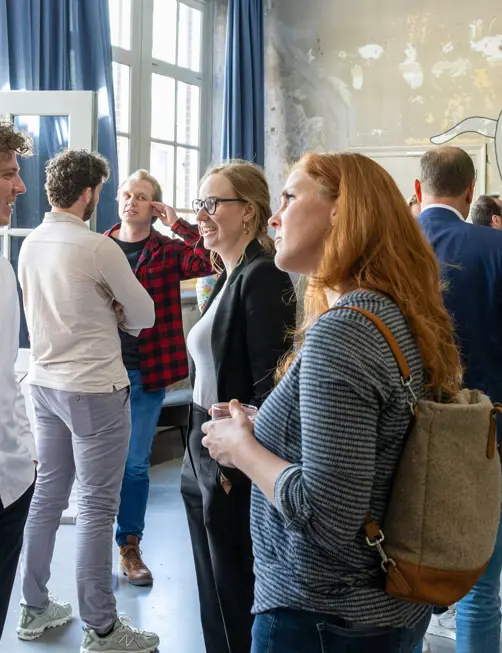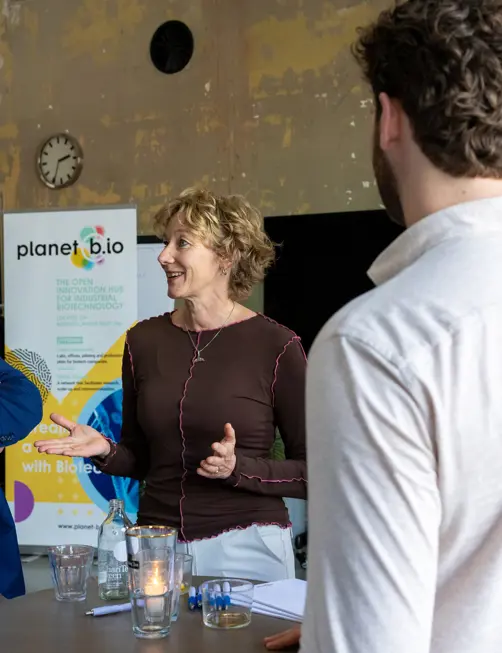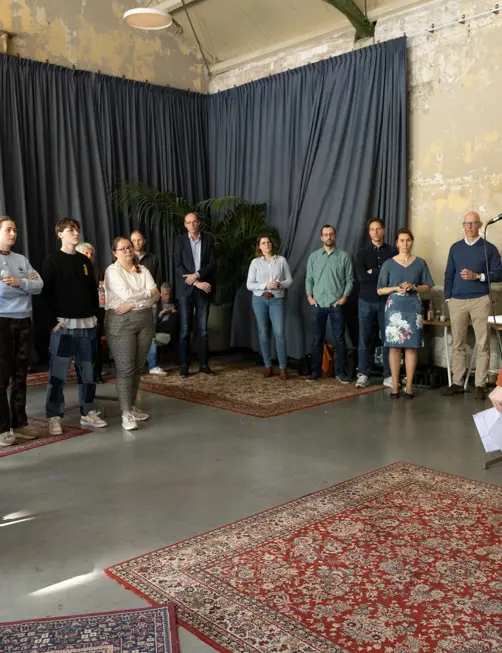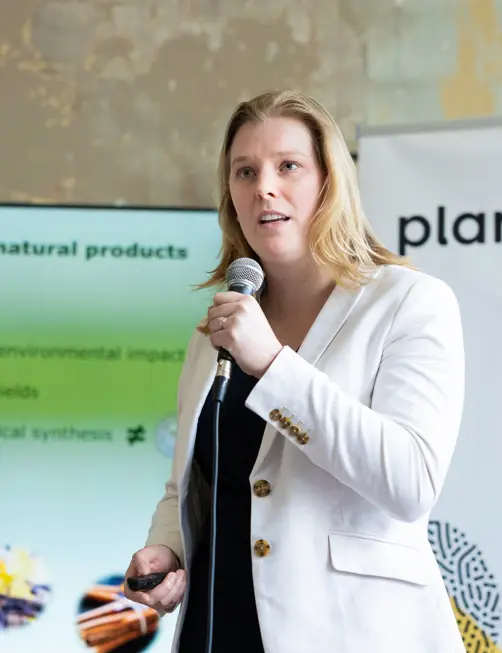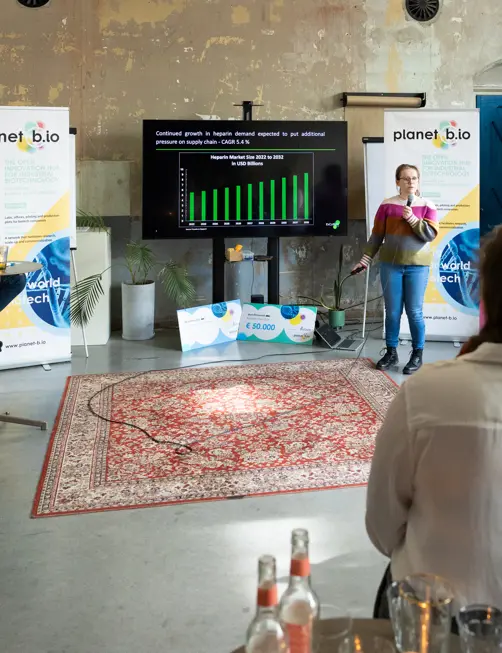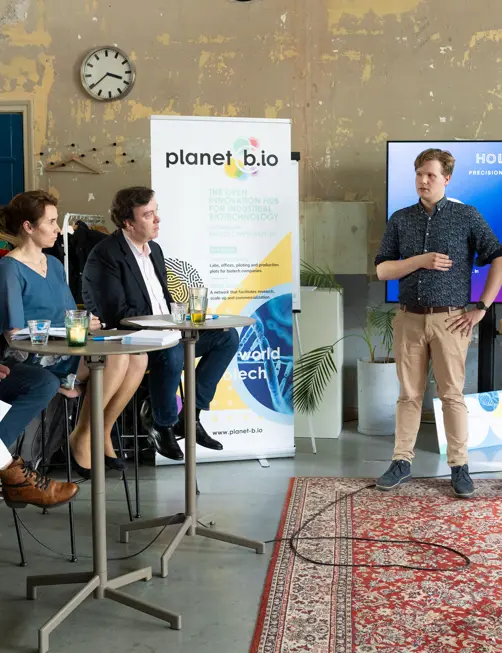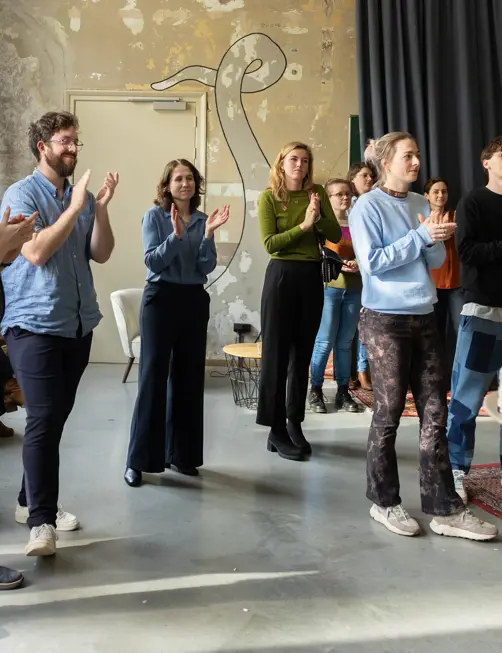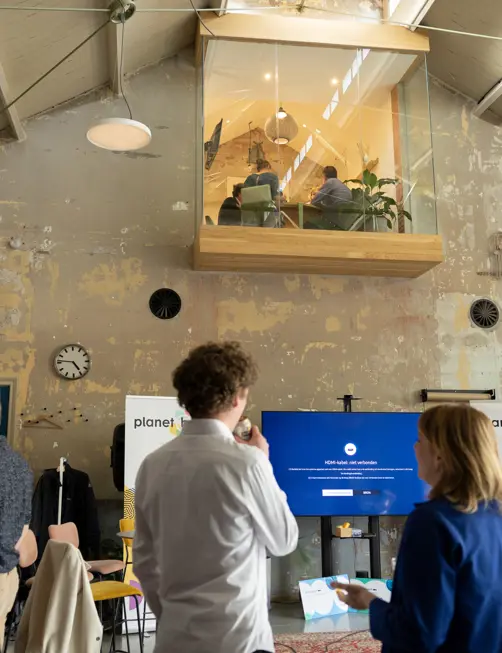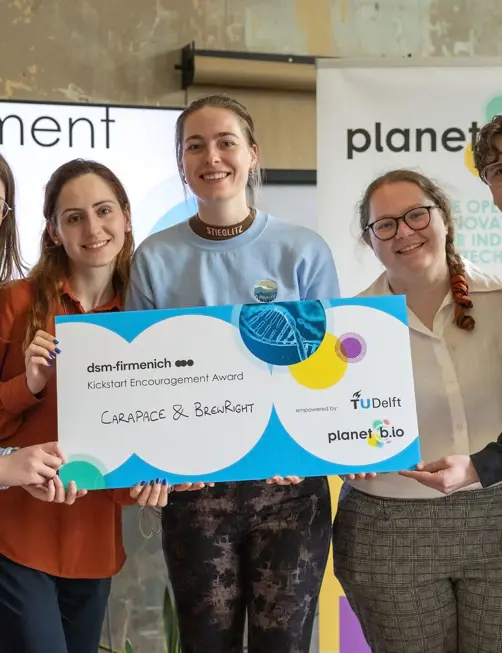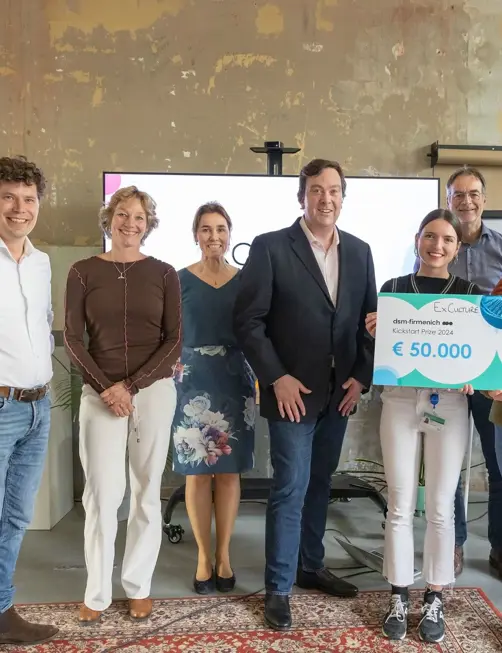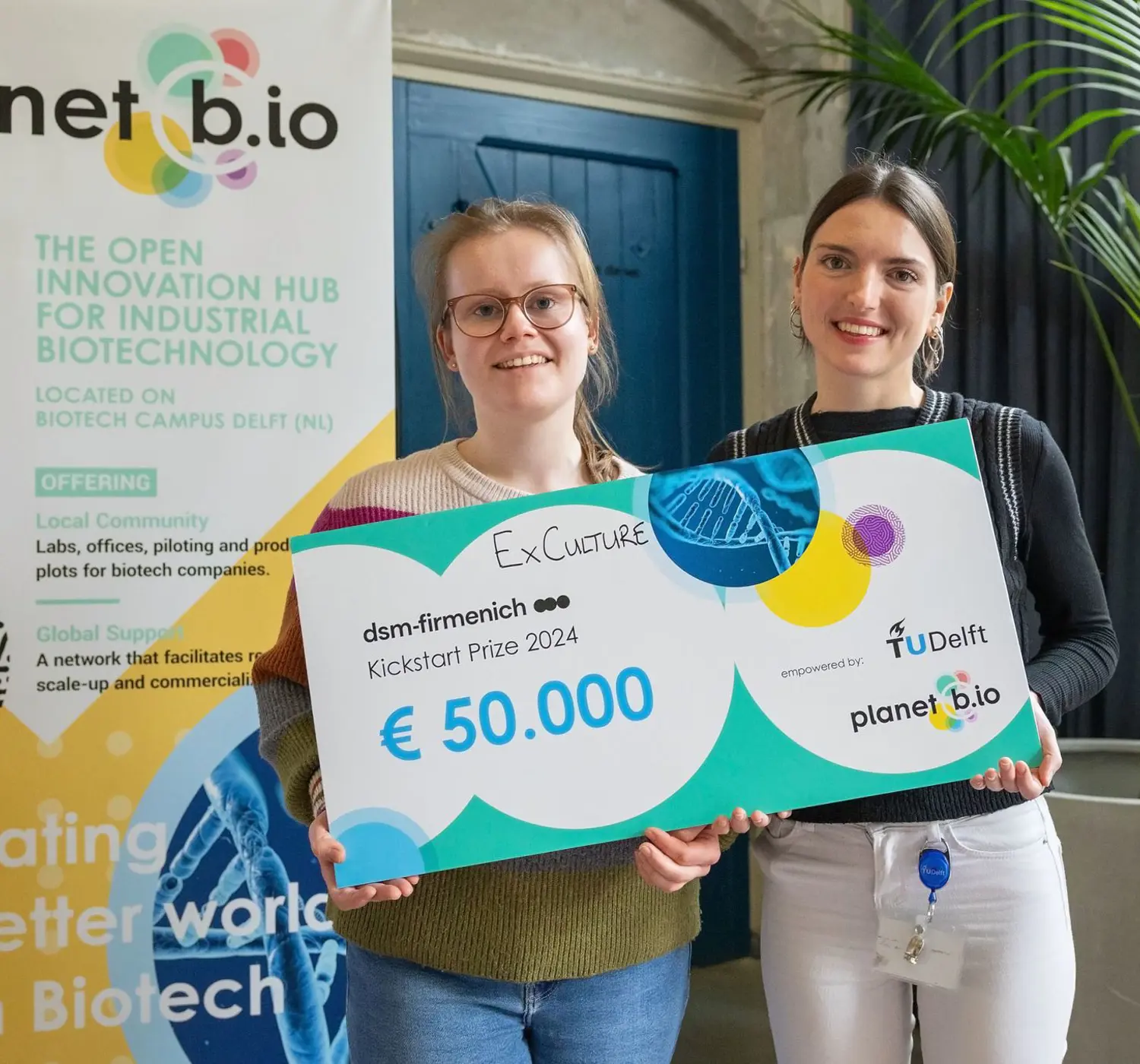
On the 12th of April, ExCulture won the dsm-firmenich Kickstart Prize, worth €50,000. The prize will help them to further develop their concept of mixed culture production of heparin. The Kickstart Prize is part of a larger grant provided by dsm-firmenich, that aims to support the collaboration between the TU Delft and dsm-firmenich, with a particular goal to support the growth of the innovation ecosystem at the Biotech Campus Delft. Planet B.io, the organisation that manages this ecosystem, is responsible for the identification of value-adding initiatives that can make the best use of the grant.
Why is the Kickstart Prize important?
It is challenging to transfer discoveries resulting from academic research into a business case and commercialize them to create an impact in our society. The dsm-firmenich Kickstart Prize supports early and promising innovation opportunities in biotechnology and stimulates (future) founders to find the next step on their path towards commercializing their technology. The Kickstart Prize aims to coach entrepreneurs to develop their business proposition and connect them to the right partners in the field of funding, technology, and business development. So it is more than just a prize, it is a program.
What does the program entail?
The dsm-firmenich Kickstart Program 2024 consists of a short intense program of two days to further develop the proposition of the selected (pre)start-ups that have a link to the TU Delft. The Program was organized by Bouke de Jong, CTO of Planet B.io, in collaboration with Cornelis Mijnders, Program manager at Biotech Booster. Both experienced biotech entrepreneurs using their knowledge and experience to support the next generation founders. When selecting the participants Bouke and Cornelis looked at the boldness of the proposition; How big can the impact be and how is this going to be realised? Moreover, the product or service should contain some form of biotechnology or use biobased streams.
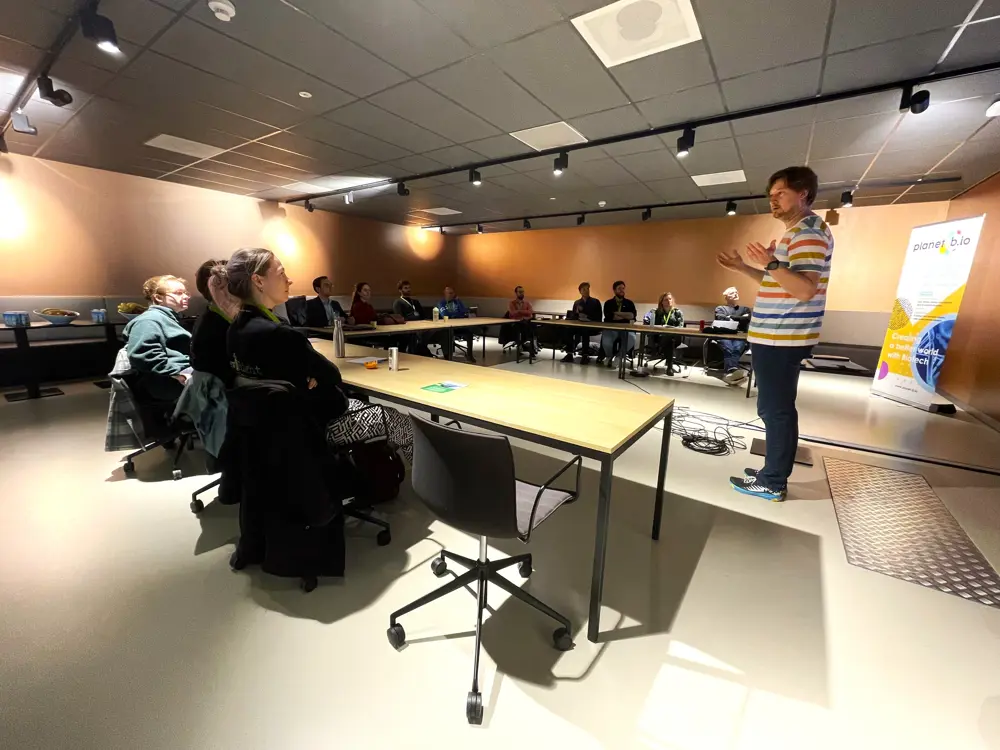
Bouke de Jong, Planet B.io: “We think it is very important that the Kickstart Prize is not just a prize for one start-up. Each chosen founder team proceeds to refine their pitch and craft their business proposition, which they validate by engaging in interviews with potential future customers, relevant experts or policy makers.”
Three additional experts were invited to support the (pre)start-ups. Tech Scout Justin Kok from TU Delft Enterprises discussed the necessary steps and hurdles that need to be taken to start your company and get access to IP from the university. Elmer Bol, a serial entrepreneur with experiences in ‘making that deal’ was sharing his experience. On the second day of the program Art de Boo was invited, co-founder of Dutch DNA, now Gingko Bioworks. Art talked about the cultural change that he made as a spin-off from TNO, to become a fast paced and flexible start-up, with full empowerment of his employees.
The Candidates
The following (pre)startups were involved in the program:
Aptaquest – who perform a technology for single cell protein fingerprinting, drug discovery and early disease detection, as well as quality assurance for enzyme production.
BrewRight – who are developing an idea to capture and recycle CO2 from breweries.
Carapace – who develop a formulation that can be used as sustainable and controlled pesticide release in agricultural applications.
ExCulture – this startup aims to fill in the gap of heparin supply by transforming the current, animal-based production of heparin into a biotech-based production by a mixed culture fermentation.
Foamlab – working on sustainable replacement of styrifoam (polyethylene) by a biotech-based method.
Hologenomix – developing large scale DNA diagnostics for managing quality in food, environment, medicines, nutritionals, water and bioindustry.
NICY (Novel Impossible Compounds in Yeast) – using their technology, it is possible to manufacture particular compounds (like flavors), overcoming toxicology by precision fermentation combined with phase separation.
ProteoT – who develop proteomics, software and a database for quality assurance in agricultural products.
Soundcell – they are revolutionizing the speed of diagnostics for antibiotic resistance by innovative bio-nanotechnology.
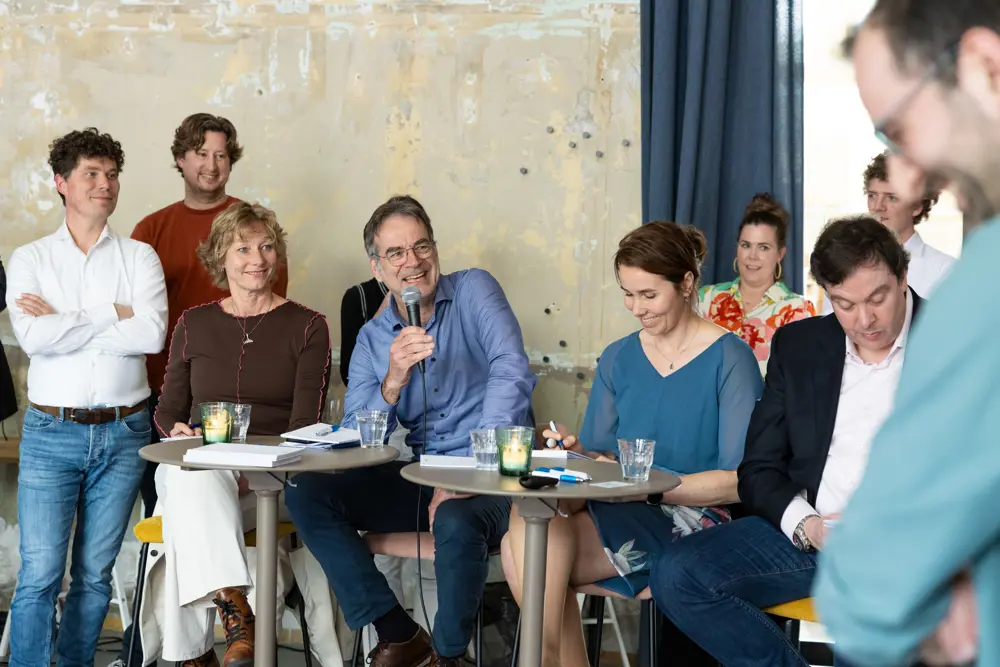
April 12th, the Final Pitches of the Kickstart Program
At the Kickstart Program finals, the participants gave their killer pitches to the jury. The jury consisted of Adam Burja (dsm-firminich), Oscar Goddijn (dsm-firminich), Kirsten Herben-Steinbusch (Biobased Circular) and Cindy Gerhardt (Planet B.io).
Adam Burja, Head of Biotechnology dsm-firmenich: “Along with my fellow judges, I thoroughly enjoyed the dsm-firmenich Kickstart event. Thank you to Planet B.io for hosting such an inspiring event for us at the Delft Biotech Campus. Following engaging, rapid-fire pitches, and spirited question-and-answer sessions with the nine (pre)start-ups, we jurors had the difficult task of selecting a winner. The companies presented their unique selling propositions concisely, highlighting how they can impact positively on society. My fellow jurors and I evaluated both the companies’ target markets for their products and the founders’ plans for delivery. After comparing our notes on these two criteria, it was clear to us who the winners of the awards should be. Congratulations! We look forward to seeing how the companies shape the future and bring biotech progress to life!”
After a tough jury discussion, ExCulture won the €50,000 Kickstart Prize. Carapace and BrewRight won the Encouragement Award. The remaining six finalists did not depart empty-handed, they left with a wealth of new skills, connections, and experiences. Their dedication to pushing the boundaries of innovation has been evident. Undoubtedly, they will play a pivotal role in reshaping the landscape of biotechnology.
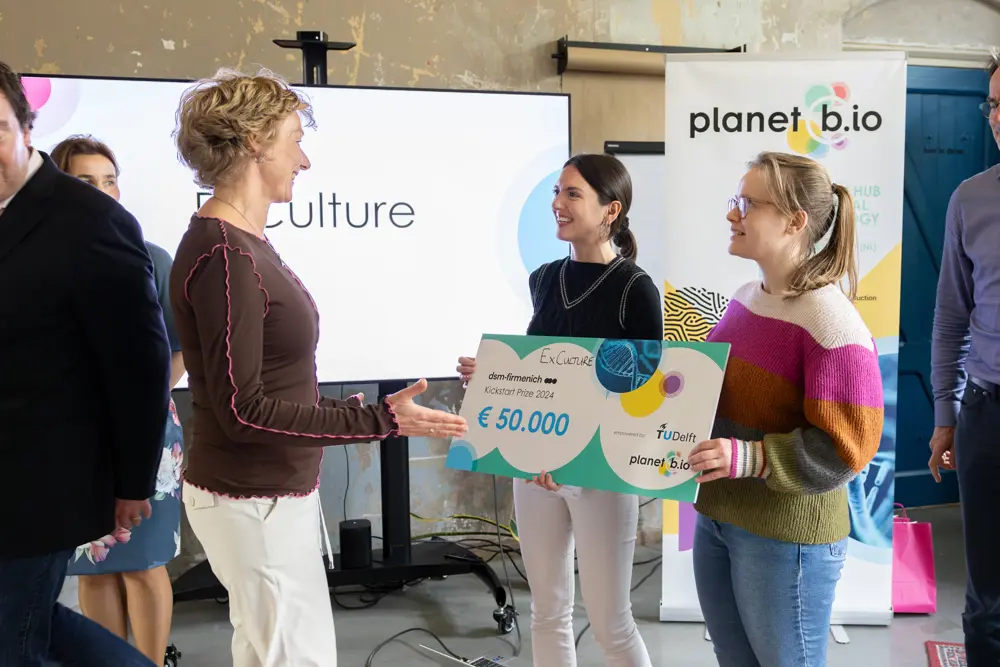
“The Kickstart program was a great opportunity for us to be challenged by peers and the jury members who cumulatively have many years of experience in industrial biotechnology and applied sciences,” says Aisling Foley, CEO of ExCulture. “Their questions sparked some perception changes in how we’ve been assessing current challenges we’re facing. Winning the prize is also impactful for us, as it will allow us to hire a Lab Technician at the end of the summer to support our operations at Planet B.io. It’s great to have our office space and lab at Planet B.io for a number of reasons, the first being the proximity to the TU Delft campus where our technology originates from, secondly because Planet B.io offers spaces that we can grow into overtime as our team expands, and thirdly because the Planet B.io has a great community of innovative startups and scaleups,” she concludes.
Future
Looking ahead, Bouke underscores the critical importance of sustainable innovation:
“Creating a healthier planet is what really matters to us. Facilitating growth and development of biotechnology start-ups will collectively move the needle in the right direction,” says Bouke. “We are here to support biotech companies in their journey to bring innovations to the market. We are very happy that we could fulfil this role during this program, and we are looking forward to continuing to do so in the future,” he concludes.

